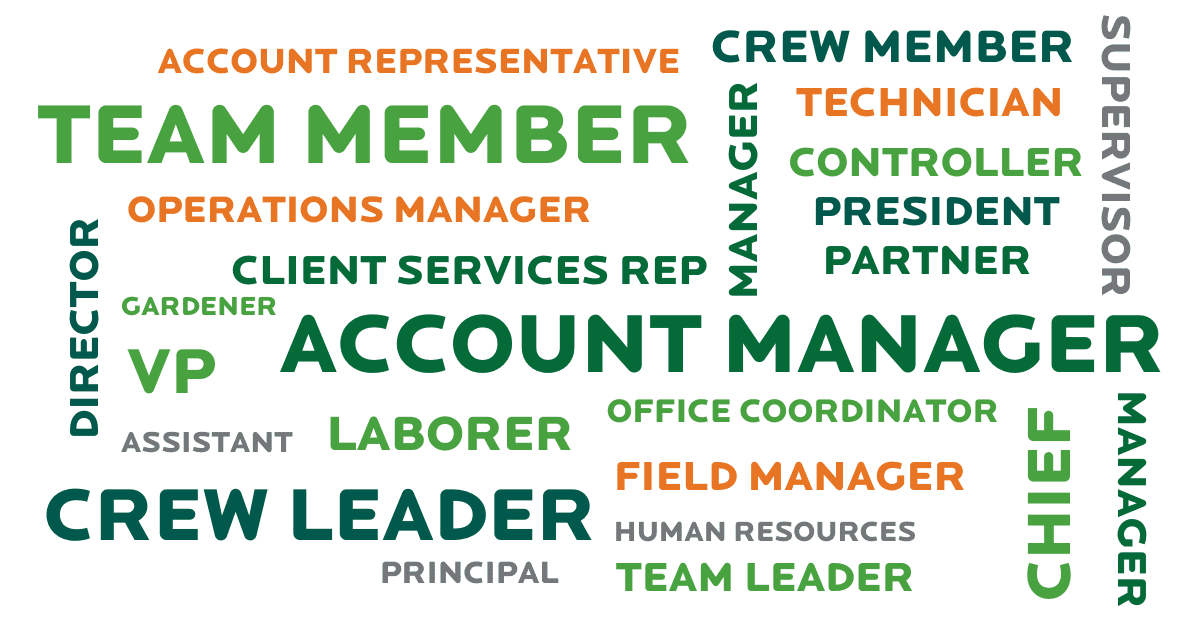
When it comes to your employees’ job titles, you may think it’s just a name and it doesn’t matter beyond them getting paid fairly and doing their job at the end of the day. However, inconsistent or unclear job titles can result in fewer job applications, a lack of company organization and accountability and possibly even litigation.
“To prevent litigation, let alone administrative ambiguity, the job titles in the payroll system, on the org chart, and in the job descriptions must be identical,” says Steve Cesare, human resource expert with The Harvest Group.
Why It Matters
It can be easy to dismiss job titles as a clerical matter, but without consistent position names, you can’t have structured org chart or tie company goals to those roles.
“The hierarchy in the org chart is defined based upon positions and job descriptions and their role in achieving company goals,” Cesare says. “The more structure and the more clarity that the company puts forth in its handbook, in its onboarding, its job descriptions, and in its career ladder, I think that will show people what their roles are individually and collectively help the company achieve its goals.”
Titles are usually associated with pay and you don’t want employees feeling they are underpaid based on their title.
“People use the word manager, account manager, ops manager, field manager, a lot,” Cesare says. “Because they have the word manager, they think they’re going to be classified as white collar exempt and have more status. That’s usually not the case.”
Another example of a title that can be misused is the term supervisor. The Supreme Court has defined a supervisor as someone who is “empowered by the employer to take tangible employment actions.” These tangible employment actions include hiring, firing, failing to promote, reassignment with significantly different responsibilities, or a decision causing a significant change in benefits.
Cesare says it’s inappropriate to call a foreman a ‘supervisor’ because he can’t hire, fire, or promote the employees under him. Supervisory status is important because if discrimination or harassment is committed by a supervisor, the employer is strictly liable.
Ashley Wojciechowski, human resources and recruitment specialist with LandOpt, adds that out-of-the-box or inconsistent job titles can lead to fewer views and applications on your job postings. She encourages using keywords and titles that job seekers can find easily.
“Using similar job titles across the industry will increase the probability that industry-specific individuals will come across your posting,” Wojciechowski says. “Think like a job seeker. When someone is searching for a job, they will use common job titles to filter their search results. If you have a title that is unique or if it differs greatly across the industry, it will be difficult for your posting to generate in search results or for them to find the type of position they are seeking. The title of a job posting is also important because it will encourage the right candidates to apply.”
It can be equally difficult for recruiters to understand someone’s abilities and work experience based on their title since they vary greatly across the industry. Benchmarking pay can also be muddled with the various job titles. One company may call their employees technicians, but their tasks are similar to another company’s crew member or laborer.
“The titles do matter, not only to the person getting paid but also for conversations within the company, across the company as well as other organizations,” Cesare says.
Developing Accurate Titles
Often people in this industry wear a lot of hats, so it can be a challenge to create defined roles, let alone titles for your team members. Wojciechowski suggests starting with clear job requirements and responsibilities and creating the title from there. Conduct industry-specific research into titles and job descriptions out in the market to help identify the position you’re looking to fill.
Role titles do change over the years and that’s why it’s important to stay up-to-date with industry trends.
“Five years ago, the account manager was overseeing work crews,” Cesare says. “The old account manager position has been dichotomized into two positions. Now the account manager per se in many companies has become a client services rep where the account manager is now customer-focused. That other remaining part of the old account manager’s job is now inwardly focused called an ops manager or an ops supervisor.”
Cesare says you should also consider your company’s culture when it comes to job titles.
“Some company cultures are more construction-based and formal, and they like the regimented sound of a foreman,” Cesare says. “Other cultures are seemingly softer and more collaborative, and they want to be called team leaders. Some other cultures want to bridge that gap because we’re all part of the same crew. So, my employees are called crew members and I should be a crew leader.”
Whether you choose to have a crew member supervised by a crew leader, a team member supervised by a team leader or a laborer overseen by a foreman, Cesare stresses your company needs to use this consistently.
“Make sure there is internal consistency because it’s okay if Company ABC is different from Company XYZ,” Cesare says. “But internally, ABC must be consistent with ABC and XYZ must be consistent with XYZ.”

